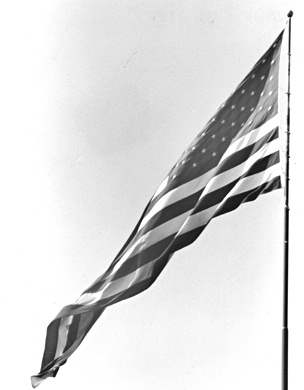All Nonfiction
- Bullying
- Books
- Academic
- Author Interviews
- Celebrity interviews
- College Articles
- College Essays
- Educator of the Year
- Heroes
- Interviews
- Memoir
- Personal Experience
- Sports
- Travel & Culture
All Opinions
- Bullying
- Current Events / Politics
- Discrimination
- Drugs / Alcohol / Smoking
- Entertainment / Celebrities
- Environment
- Love / Relationships
- Movies / Music / TV
- Pop Culture / Trends
- School / College
- Social Issues / Civics
- Spirituality / Religion
- Sports / Hobbies
All Hot Topics
- Bullying
- Community Service
- Environment
- Health
- Letters to the Editor
- Pride & Prejudice
- What Matters
- Back
Summer Guide
- Program Links
- Program Reviews
- Back
College Guide
- College Links
- College Reviews
- College Essays
- College Articles
- Back
Liberty’s First Crisis • Charles Slack MAG
Freedom of speech – it’s something most Americans take for granted. Nowadays, few of us fully appreciate that we can say whatever we like, about whatever we like, and not fear persecution. Most of us don’t know that this was not always the case, that there was a time in America when insulting the president was a crime.
In Liberty’s First Crisis: Adams, Jefferson, and the Misfits Who Saved Free Speech, author and historian Charles Slack tells the fascinating story of the Sedition Act of 1798. Passed during the Adams’ administration, this law made criticizing the government, the president, or any member of Congress, a crime punishable with heavy fines and/or imprisonment. In this book, Slack explores the times, political climate, and people that brought the law into (and later out of) existence; the meaning and significance of Freedom of Speech; and the people, who have fought, or are still fighting, for this freedom.
In 1798 when the Sedition Act was passed, the U.S. House, Senate, White House and Supreme Court were controlled by the Federalist party. The Federalists were the only unified party at that time, and many prominent politicians (such as John Adams and Alexander Hamilton) were members. The Federalists believed America should have a powerful standing army and a strong central government,controlled primarily by America’s wealthy. Though this may seem an absurd definition of liberty today, we must remember that they were creating a government with no examples to refer to.
Though most of the non-Federalist congressmen and senators shared these views, they did not belong to an organized party and went by a variety of names, including Republicans, Jeffersonians, and Democratic-Republicans (for the purposes of the book, Slack refers to them all as Republicans). In general, Republicans believed that the majority of power in America should go to the individual states and that a large federal army could too easily be misused by those in power to oppress the American people.
As Republican politicians and newspapers became increasingly more critical of Federalist leadership, many people began to believe they were trying to undermine the American government and envelope the fragile young nation in upheaval and rebellion. The Federalist leaders thought that if only they could silence these treacherous new upstarts, they could focus more on the important work of protecting America from the very real possibility of foreign invasion. Now was a time for patriotism, not inner turmoil. And so the
Sedition Act was passed. The first test of America’s ideals had begun.
I loved Liberty’s First Crisis. Slack’s writing style is entertaining and not at all dense. The book taught me a lot about a relatively obscure, but very important, piece of American history. It made me think about power and corruption, human nature, and the responsibilities that come with freedom. Through it all, Slack does not portray either the Federalists or the Republicans as “the bad guys” or “the good guys,” but simply as people who ultimately had the same goal, despite their differing viewpoints.
In the last chapter, Slack discusses the Bill of Rights, that “parchment barrier” that protects Americans from having their rights violated. He reminds us how important it is, but also that without the American people enforcing it, the Bill of Rights is just a piece of paper; it will never be any stronger or weaker than the people who stand behind it.
I highly recommend Liberty’s First Crisis to anyone interested in history and politics, or just looking for a good read. It reminds us that even in America, freedom is not something we can afford to take for granted. It tells us the crucial but often overlooked story of some of the many people who fought for the rights we enjoy today. It is the story of the people who were, to use Slack’s term, “the misfits who saved free speech.”

Similar Articles
JOIN THE DISCUSSION
This article has 2 comments.

11 articles 4 photos 89 comments
Favorite Quote:
"We are all in the gutter but some of us are looking at the stars." <br /> -Oscar Wilde